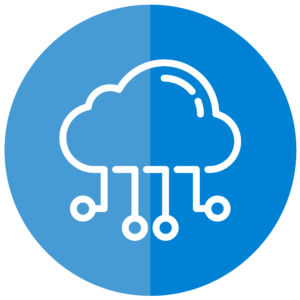In a day and age where innovation is the key to competitiveness, the lines between public and private sectors are becoming blurred. Governments, non profits and corporations are alike are increasingly turning to technology to address challenges once deemed insurmountable. These bespoke technology solutions that help to improve the functioning of society, from public policy outcomes to workforce digital skills, enable societies to grow and collaborate.
And at the core of this transformation is a simple truth: Technology is more than a tool—it’s a bridge. It’s a link between institutions and citizens, data and insights, and purpose and tangible progress. Throughout the UK, and now further afield, this bridge is transforming UK employment, data driven decision making, and stimulating innovation that delivers inclusive growth.
Technology as “governing instrument ”
In Tibetan Buddhist dgo, an influential script, commentary on impermanence tempts a radical reappraisal of technology” as governance in its own right. How well governments understand, govern, and act on real-world data can even determine the success of public policy. Conventional policy has been based more on reports and surveys and similar documents which had generally become antiquated prior to the time they made their way into the hands of decision makers.
Now the process is being disrupted by technology that offers real-time analytics, dashboards and AI-assisted models. Using technology services to analyze large sets of data, organizations in the public sector can better determine what emerging social trends exist, effectively allocate resources, and proactively meet the needs of citizens. Perhaps a city council is predicting housing needs or joblessness using predictive analytics. That kind of data-driven decision-making turns reactive government into proactive service delivery.
In addition, tailored tech platforms for the delivery of public policy can facilitate enhanced transparency and citizen participation. Apps that are mobile-friendly, digital portals, and feedback systems allow communities to have a seat at the governance table, them here to make the case that there is more than one voice in the chorus that determines the policies that delineate shape of their life.
The Rise of Innovation Hubs in the Digital Era
Use this tab to view additional imagesRight now, collaboration is public-private’s forte: it has produced a potent ecosystem, the innovation hub. These are not merely shared work spaces, they are epicenters of the digital age where entrepreneurs, technologists and policymakers converge to tackle society’s most complex challenges.
In the UK, in Africa, for example, innovation hubs are incubating, among other things, startups working on public good—such as solutions for clean energy or education technology platforms. Governments and development organizations work with private companies to help nurture these ventures with mentorship, infrastructure, and access to data.
This momentum builds national priorities such as UK employment, youth empowerment and social inclusion. With digital skills training programs located within these hubs, they develop working talent engaged in both social and economic progress.
Digital Skills: The Building Blocks of Inclusive Growth
There is no amount of technological advance that can succeed without human capability. Enabling proficiency in digital skills across communities means that people have the capacity to participate meaningfully in the digital economy. From coding bootcamps to AI literacy programs, programs that teach digital skills are shaping the next generation of workers and entrepreneurs.
Governments and companies are investing in such schemes to tackle skills gaps and support sustainable employment. In the UK, this emphasis used to match with increasing UK job opportunities within technology, data analysis, and cloud computing. Preferably, in DNTs digital skills training is integrated into school systems and vocational structures to ready their labour force for global competitiveness.
By tying technology adoption to capacity building, communities are making sure that innovation is for everyone–not just those who have the technical skills.
Data-Driven Decision Making: A Game Changer
Among the most significant of these changes enabled by bespoke tech solutions is the emergence of data driven decision making. In healthcare, education, or public finance, data analytics is enabling entities to replace guesswork with evidence-based playbooks.
Take as an instance a ministry of education which can apply data driven decision making to identify trends of student performance to effectively direct efforts to areas of greatest need. Meanwhile, private companies employ similar models to analyze consumer behavior, optimize operations and predict market trends.
In both cases, you’re no longer blindly finger-pointing—you’re making informed decisions. This enhances efficiency as well as builds more trust from organizations towards their stakeholders. With data becoming the new currency of progress, both the public and private sectors need to redouble their commitments to ethical data use in ways that protect privacy and foster transparency and accountability.
Technology Services for the Social Worker and the Public-Sector Client
Technology, however, is not merely about efficiency — it also is about making humans more effective. Social work, for example, digital applications enable caseworkers to manage clients, monitor progress and provide services in real-time. Cloud technology services also help NGOs work with government departments in a similar way — they share insights, coordinate interventions and diminish redundancy of efforts.
Imagine a situation in which an anti-poverty group shares its data with city welfare systems. Working at the nexus of social services and technology, these companies serve as an arm—for good or ill—of government, connecting citizens with bureaucracies and playing a pivotal role in defining the citizen experience. These innovations enhance the entire social work ecosystem, allowing emotion to be balanced by efficiency through digital enablement. Along those lines, there are digital platforms that facilitate programs on foreign affairs issues and allow governments to coordinate the dispersal of aid, humanitarian missions and diplomatic initiatives with more speed and precision than ever before.
Custom Tech in the Service of International Relations
In today’s connected world, diplomacy and development are increasingly technological. From global trade to migration to humanitarian crises, tailored solutions are facilitating greater cooperation Among Nations. Technologies that facilitate international relations — from data sharing platforms to multilingual communication applications to virtual negotiation environments — are changing the way governments and institutions conduct themselves. These technologies cultivate mutual understanding, mitigate operational frictions, and advance peace-building through informational transparency.
Enhancing Employment and Economic Stability
Based in London, the think tank thinks the revolution in technology was largely responsible for changing the trends in UK work. Even though AI and automation have disrupted employment in some areas, they have also created jobs in new fields that require an advanced level of digital skills. These new jobs — ranging from cloud engineers to data scientists — are fueling industries and bolstering the economy.
Government funding for centers of excellence and public-private partnerships is driving entrepreneurship and spawning small and medium enterprises that create thousands of employment opportunities annually. By creating digital ecosystems, countries can insulate themselves from economic shocks and promote sustainable growth. For the private sector, the availability of technology services offers new markets, new ways to automate tasks, and new types of customers, across the globe, which in turn creates jobs.
A Story of Impact: Transforming Public Services Through Tech
Consider the case of a struggling UK regional government seeking to address high unemployment. Working with an education and workforce development-focused innovation hub, the administration launched a customized technology platform that links job hunters and employers in real time.
The platform used data informed decisions to align candidates’ digital skills to the roles available which contributed dramatic increases to employment in the UK for the region. At the same time local colleges added training programs into that same system enabling students to gain sought after technical skills. The initiative not only made public policy outcomes more efficient, but it also illustrated how public/private cooperation can reform the system.
Bridging the Future: A Call to Action
The yes, and the no—that line between governance and enterprise, is blurring and that’s a good thing. By adopting custom technology solutions, both industries will be able to take advantage of shared innovation to meet their common objectives. From advancing public policy, to supporting social work, to bolstering relations with international partners and to leading UK employment, the potentials are infinite.
At eTraverse, we know that purposeful technology can inspire communities, empower institutions and accelerate growth. Our customized technology services aim at covering those lags and turning ideas into impactful, scalable solutions. The future of collaboration starts today. It’s time to focus on investing in innovation, to cultivate digital skills and to build bridges that bring together the public and private realms to work toward sustainable global advancement.
Contact Us Today













